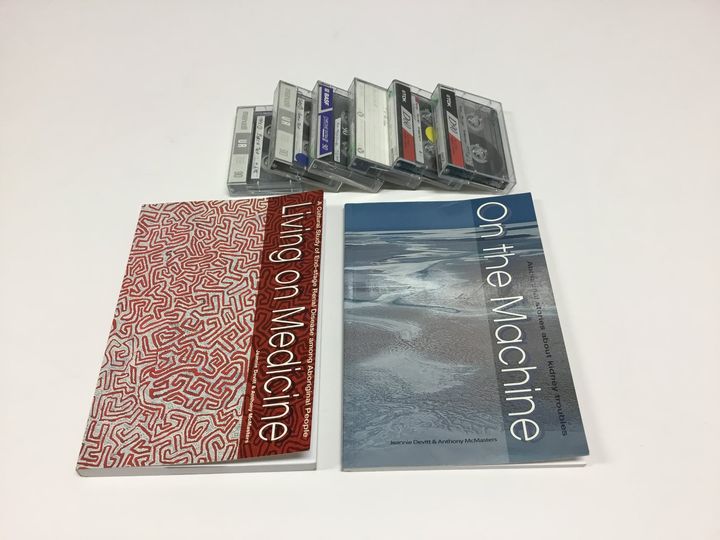Nhenhe unte areme photo ante pipe mape Congress Arrurlenye-ntyele. Congress-le alhengke areme tyerrtye apmere arenye mape ante tyerrtye arrpenhe areye. Mwantye-le araye photo nhenhe mape tyerrtye-itethe-kwenye mape-arlke.
Here you can see photographs and documents from the history of Congress. Congress pays respect to traditional owners and to the wider community. Be mindful that these pictures may include deceased people.
Today is World Kidney Day. Congress pays respect to people who have helped bring better understanding and services for Aboriginal people who are living with kidney disease.
Up until about fifteen years ago, people had to stop in Alice Springs or Darwin to get treatment for kidney disease. There was no dialysis on communities. Now this has changed. For example The Purple House now runs 18 remote clinics and a mobile dialysis unit. It was started with funds raised by Papunya Tula Artists.
In the 1990s Congress and Menzies School of Health Research researched what kidney disease means for Aboriginal people. Anthony McMasters, who was then a Congress Aboriginal Health Worker, and the project’s Research Officer, Jeannie Devitt, talked with patients, families and community members about how kidney disease and treatment for kidney disease can affect them. They went to Fitzroy Crossing to learn from people doing dialysis at home. The research showed that kidney disease is a big problem. It helped get recognition that dialysis needs to be in communities, where people can be on country and with family. It found dialysis on community is the most important step for better health, for central Australia Aboriginal people who have kidney disease.
Jeannie and Anthony made two books from this research. “On the Machine” is stories of Aboriginal people about kidney troubles. “Living on Medicine” gives recommendations for government and service providers. You can buy these books from Institute for Aboriginal Development (IAD) Press.
First Nations Media Australia has helped the Congress history project make digital copies of the voice recordings of people who were interviewed in 1994 for this research. The recordings and digital copies will be preserved in the Congress archive, keeping them safe for the future.
